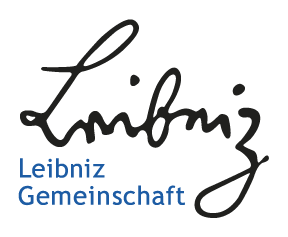TIB at EuroScience Open Forum 2018
The EuroScience Open Forum 2018 (ESOF 2018) this year took place in Toulouse, France. ESOF is one of the major forums where researchers, scientist meet and discuss controversial issues around science with policy makers and other important stakeholders. TIB was represented by Dr. Gábor Kismihók, head of the Learning and Skill Analytics research group, who is also a member of the Marie Curie Alumni Association , Policy Working Group. His contribution to ESOF 2018 was threefold:
- Gábor was a panelist in the debate about the role of Social Science and Humanities (SSH) researchers in the era of rapid digital and technical innovation. During the discussion, panelists argued that SSH is critical to understand the impact of technology on the society. Furthermore in the upcoming years of robotization and Artificial Intelligence (AI), SSH researchers will be inevitable to contribute to a responsible, open and transparent social system in which technology and humans will exist and work closely together.
- He was one of the organisers and facilitators of the Researcher Mental Health Awareness workshop. This topic is gaining more and more attention in the academic world, as the number of researchers diagnosed with some sort of mental disorder is growing rapidly. This phenomenon needs action on all levels: 1) on micro level – to help researchers and their supervisors to cope with high levels of stress and other mental problems; 2) on mezo (organisational) level – to make organisations aware of this issue and deploy resources and organisational policies to address mental health problems and 3) on macro (country or EU) level – to look at the impact of this issue on the research output of the European Research Area.
- Gábor also contributed to a poster presentation about the SciLink/TranSkills researcher initiative, which aims at fostering the professionalisation of researchers through transferable skills training. Transferable skills will be more and more important in research related working environments. Especially, since research in the 21st century is oftentimes interdisciplinary, and it also requires teamwork of researchers with different cultural backgrounds within and outside of academia. As a result, these skills often make the difference between good and excellent research. Thus, promoting and fostering training in transferable skills are essential to be successful in research and to secure long-term employment. Therefore SciLink/TranSkills , as a bottom-up researcher initiative for researchers, provides affordable transferable skills training for the European researcher communities.
Gábor has also been interviewed by the German national radio Deutschlandfunk about his ESOF 2018 expectations, which interview was part of the podcast on Deutschlandfunk’s
ESOF coverage.


Email: gabor.kismihok@tib.eu
Phone: +49 511 762-14705
Dr. Gábor Kismihók is the head of the Learning and Skill Analytics Research Group at TIB Hannover. The work of this research group covers a number of topics, which are fundamental to understand learning and educational processes in the 21st century. These topics are:
- the use of intelligent technologies and novel, oftentimes large (big) datasets to enhance the quality of learning and education;
- Experimenting with novel tools and methods in the area of Learning Analytics;
- Understanding the impact of 21st century skills on educational processes;
- Promoting high levels of ethics and privacy, together with openness and transparency when it comes to the use of individual data about learning and education;
- Understanding the transition of individuals between education and other sectors of society, like the labour market.

